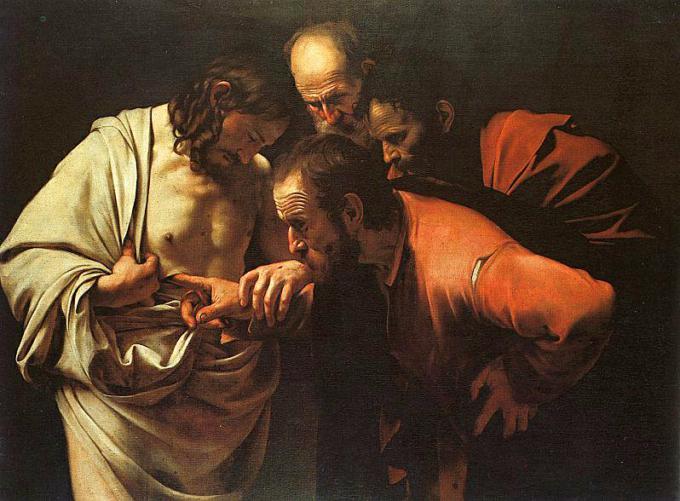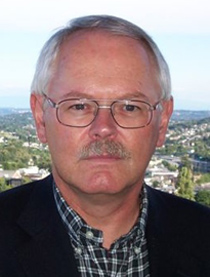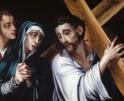
Spirituality
... for Christians, the resurrection must also be a radically physical event. Why?

Rolheiser
Believers and non-believers alike have been arguing about the resurrection since the day Jesus rose. What really happened? How was he raised from the dead? Did an actual dead body really come back to life and step out of the grave or was the resurrection a monumental life-changing event inside the consciousness of Jesus' followers? Or was the resurrection both, a real physical event and an event inside the consciousness of believers?
Obviously nobody was there to see what actually happened. Those who claimed Jesus was alive again didn't see him rise and emerge from the tomb, they met him only after he had already risen and, immediately, believers and sceptics began to divide from each other, persons who claimed to have touched him and persons who doubted that testimony.
There have been sceptics and believers ever since and no shortage of persons, professional theologians and non-scholarly Christians alike, who believe in the resurrection of Jesus as a faith event but not as a physical event, where an actual body came out of a grave. The faith event is what's important, they claim, and it is incidental whether or not Jesus' actual body came out of the grave.
Was Jesus' resurrection a faith event or a physical event? It was both. For Christians it is the most monumental event, faith and otherwise, in history. Two thousand subsequent years cannot be explained, except by the reality of the resurrection. To understand the resurrection of Jesus only as a literal fact, that his body rose from the grave, is to cut the resurrection off from much of its meaning. However, that being admitted, for Christians, the resurrection must also be a radically physical event. Why?
First, because the Gospels are pretty clear in emphasizing that the tomb was empty and that the resurrected Jesus was more than a spirit or ghost. We see, for instance, in Luke's Gospel where Jesus invites a doubting Thomas to verify his physicality: "Look at my hands and my feet. It's really me. Touch me. You can see that I have a living body; a ghost does not have a body like this."
As well, and very importantly, to cut the resurrection off from the literal fact that there was real physical transformation of a once dead corpse is to rob it of some of its important meanings and perhaps of the deepest root of its credibility. For the resurrection of Christ to have full meaning it must, among other things, have been a brute physical fact. There needs to be an empty tomb and a dead body returned to life. Why?
Not as some kind of miracle proof, but because of the incarnation. To believe in the incarnation and not to believe in the radical physical character of the resurrection is a contradiction. We believe that in the incarnation the Word was made flesh. This takes the mystery of Christ and the reality of the resurrection out of the realm of pure spirit. The incarnation always connotes a reality that's radically physical, tangible, and touchable, like the old dictionary definition of matter as "something extended in space and having weight."
To believe in the incarnation is to believe that God was born into real physical flesh, lived in real physical flesh, died in real physical flesh, and rose in real physical flesh. To believe that the resurrection was only an event in the faith consciousness of the disciples, however real, rich, and radical that might be imagined, is to rob the incarnation of its radical physical character and to fall into the kind of dualism that values spirit and denigrates the physical. Such a dualism devalues the incarnation and this impoverishes the meaning of the resurrection. If the resurrection is only a spiritual event then it is also only an anthropological one and not also a cosmic one. That's a way of saying that it's then an event only about human consciousness and not also about the cosmos.
But Jesus' resurrection isn't just something radically new in terms of human consciousness; it's also something that's radically new in terms of atoms and molecules. The resurrection rearranged hearts and minds, but it also rearranged atoms. Until Jesus' resurrection, dead bodies did not come back to life; they stayed dead, so when his came back to life there was something radically new both at the level of faith and at the level of the atoms and molecules. Precisely because of its brute physicality, Jesus' resurrection offers new hope to atoms as well as to people.
I believe that Jesus was raised from the dead, literally. I believe too that this event was, as the rich insights within contemporary theology point out, highly spiritual: an event of faith, of changed consciousness, of new hope empowering a new charity and a new forgiveness. But it was also an event of changed atoms and of a changed dead body. It was radically physical, just as are all events that are part of the incarnation wherein God takes on real flesh.
- Oblate Father Ron Rolheiser, theologian, teacher, and award-winning author, is President of the Oblate School of Theology in San Antonio, TX. He can be contacted through his website www.ronrolheiser.com.
Now on Facebook www.facebook.com/ronrolheiser
Recent articles in the Spirituality section
-
He saw the cloths and believedBishop Robert Barron
-
God's instrument for viewing the crucifixionMichael Pakaluk
-
QuinquagesimaMichael Pakaluk
-
Pro-life Christians: Now is the time to shout from the rooftopsBishop Robert Barron
-
Seeking an indulgence as an act of faithMichael Pakaluk


















